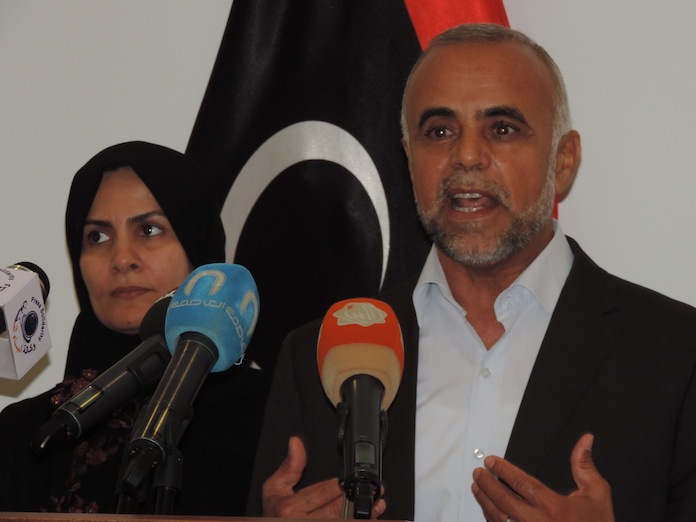By Sami Zaptia.

Tripoli, 2 July 2014:
In a formal statement issued today, the Central Bank of Libya (CBL) questioned the anticipated hydrocarbon . . .[restrict]revenue projections upon which the GNC and government had based their 2014 LD 56.95 billion budget.
The CBL said that it had received an official copy of the 2014 Budget last Thursday 26 June.
“In view of the financial crises that the country is going through”, the statement read, and the “bank’s view of the necessity of solving these (financial) crises as per our letter dated 26 June, directed to all parties concerned with the formulation and approval of the budget, and specifically the bank’s attention was drawn by the exaggerated estimation of the hydrocarbon and sovereign revenues, and the lack of clarity of a system or legality to finance the budget deficit that is going to reach unprecedented levels”.
The CBL further continued in its statement that “based on its responsibility as the financial consultant of the state, and based on its concern in establishing a state of institutions and of law, the bank has referred the whole matter to its legal department for a legal decision on the matter.”
The bank, however, stressed in the statement that it will “continue in disbursing the necessary payments such as wages and subsidies, as per the pertaining laws until it receives the legal opinion on law No. (13) of 2014 (the budget).
The budget revenues are based on anticipated gross hydrocarbon revenues of LD 27.37 bn as well as LD 8.20 bn carried over from the 2013 budget, LD 6 bn in anticipated tax and customs duties, and a LD 15 bn loan from the CBL’s reserves. It is this unprecedented loan from the CBL reserves that the CBL is objecting to.
In all of the decades under the Qaddafi regime, the CBL had grown used to the frugalness exercised by the dictator and had grown accustomed to increasing its reserves on an annual bases – not reducing them.
The CBL is worried by the “weakness” and pandering to public pressure by the short term outlook taken by the GNC and government. In May, CBL Governor speaking at an IMF conference in Amman Jordan hit out at the GNC and government. In short, the Governor thinks the politicians are profligate, playing with the nation’s savings.
The cause of this spat is the oil embargo started by the Federalist Ibrahim Jadhran which has diminished Libya’s oil exports to an average of 300,000 barrels per day since August 2013. This is a sharp decline from the peak of 1.4 million barrels per day reached in 2012.
However, despite this sharp fall in national revenues, the GNC and successive governments have insisted on setting budgets based on higher projected oil revenues and relying on CBL surplus deposits to make up the deficit.
This has sounded alarm bells at the CBL – alarm bells that have been echoed by the IMF and World Bank – warning of growing and unprecedented deficits for Libya – deficits that are a new phenomena for an oil exporting nation historically commended for its surplus reserves. [/restrict]









